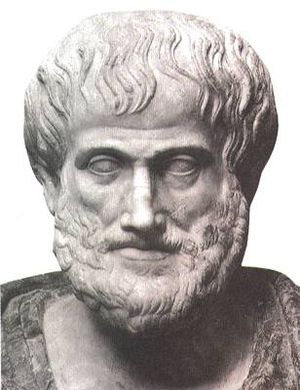Rule Of Law
 From Conservapedia
From Conservapedia 
Rule of law is the principle that every individual is subject to the law, including the law makers. Black's Law Dictionary defines it as, "the supremacy of regular as opposed to arbitrary power." According to Judge Richard Posner, “The rule of law means that judges decide cases ‘without respect of persons,’ that is, without considering the social status, attractiveness, etc. of the parties or their lawyers.”[1]
Rule of law is a rebuke to rulers who argue that they are exempt from the law from due to divine right or other rationale. The concept was familiar to ancient philosophers such as Plato, who wrote:
Where the law is subject to some other authority and has none of its own, the collapse of the state, in my view, is not far off; but if law is the master of the government and the government is its slave, then the situation is full of promise and men enjoy all the blessings that the gods shower on a state.
Aristotle, Plato's student, wrote "It is more proper that law should govern than any one of the citizens.”[2] Rule of law was a principle followed during the Roman Republic. "We are all servants of the laws in order that we may be free," Cicero wrote. Roman magistrates had immunity from prosecution as long as they held office. But they could be held to account for any transgression once their terms expired. (This system didn't cover senators since they were former magistrates who, at least in theory, merely advised their successors.) In imperial times, the emperor had full legal immunity (legibus solutus).
The Magna Carta of 1215 established the principle that the king of England is subject to the law. The phrase "rule of law" is found in a petition to King James I submitted by parliament in 1610.[3] In the English Civil War (1642–1651), the king asserted that his "divine right" took precedence over the law. Samuel Rutherford argued for rule of law in Lex, Rex: The Law is King (1644), while Robert Filmer defended divine right in Patriarcha (1680).
Obama's immigration policy[edit]
U.S. President Barack Obama's unilateral decision to grant legal status to millions of illegal immigrants in November 2014 was an outstanding violation of the principle of rule of law. While explaining to supporters why he did not have the authority to proclaim an amnesty for illegal aliens, Obama stated, "I'm the president of the United States. I’m not the emperor of the United States."[4] According to the doctrine of legibus solutus, Roman emperors were above the law. Yet the action Obama took is effectively the same as an amnesty.
See also[edit]
References[edit]
- ↑ "Errors and Oddities on the U.S. Citizenship Test"
- ↑ Aristotle, Politics 3.16
- ↑ Hallam, Henry. The Constitutional History of England, Volume 1, page 441 (1827).
- ↑ Obama Ends Rule Of Law, Declares Himself Emperor
Categories: [Republicanism] [Conservatism] [Philosophy] [Law]
↧ Download as ZWI file | Last modified: 02/16/2023 10:17:52 | 13 views
☰ Source: https://www.conservapedia.com/Rule_of_law | License: CC BY-SA 3.0
 ZWI signed:
ZWI signed: KSF
KSF